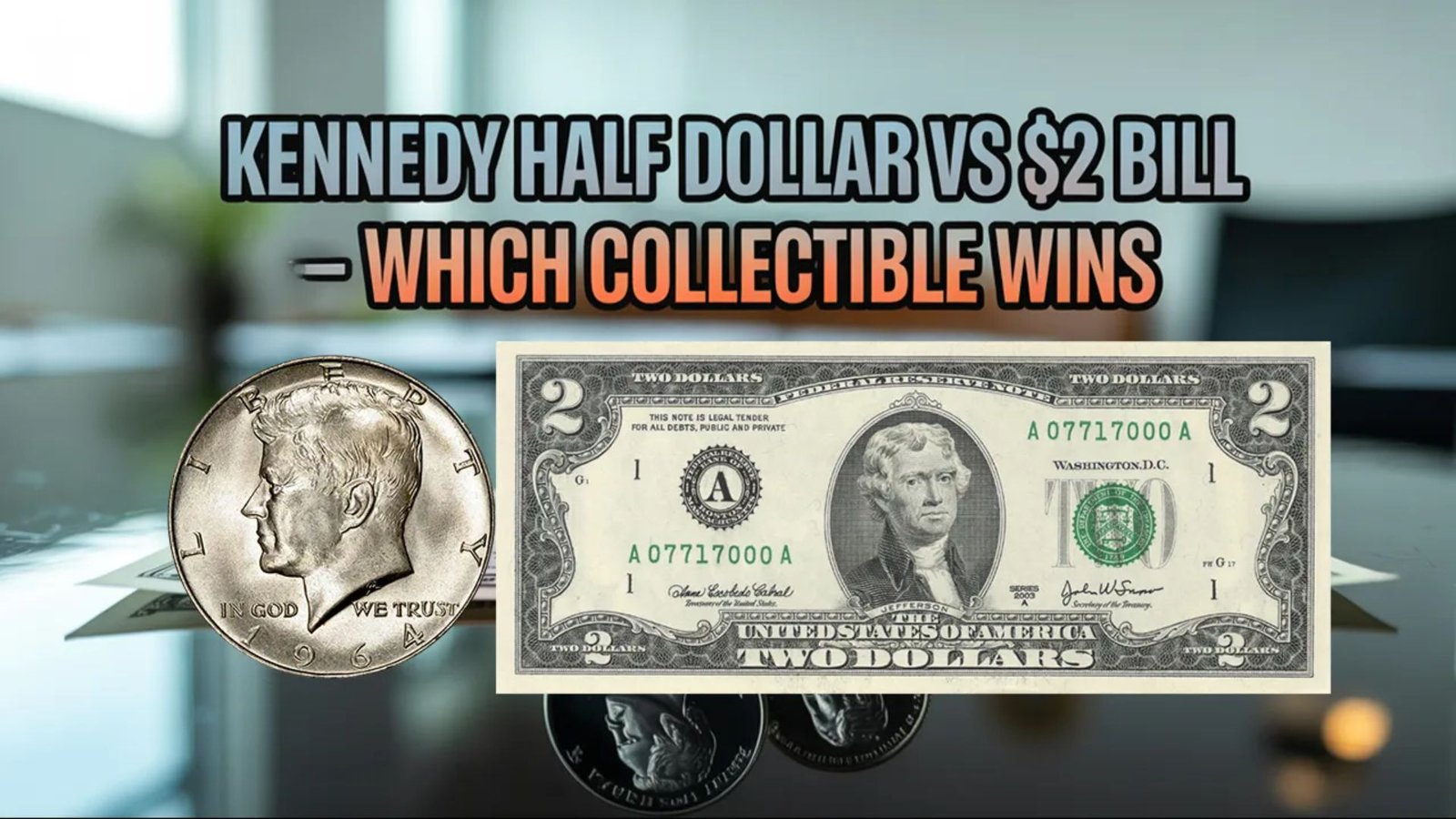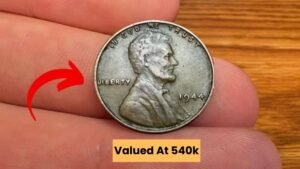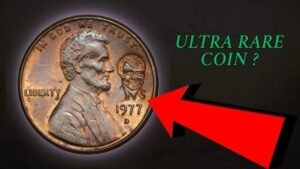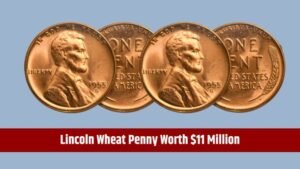Picture this: You’re rummaging through old change and spot a gleaming Kennedy Half Dollar or a quirky $2 Bill tucked in your wallet. These aren’t just money—they’re mini time capsules sparking joy for numismatic fans. Why compare them? Because in the world of rare coins and paper currency, they’re both underdogs with big collector appeal. Stick around as we unpack their histories, values, and which one might steal your heart (and wallet) for your next collectible hunt.
What Are the Kennedy Half Dollar and $2 Bill?
Meet the Kennedy Half Dollar
The Kennedy Half Dollar is a 50-cent U.S. coin featuring President John F. Kennedy’s profile on one side and the presidential seal on the other. Minted since 1964, it’s a silver (or clad) beauty that’s more at home in albums than vending machines.
The Elusive $2 Bill
Think of the $2 Bill as America’s shy sibling in the currency family. It sports Thomas Jefferson and the Declaration of Independence signing. Issued sporadically since 1862, it’s legal tender but feels like a lucky charm—rarely seen in daily transactions.
Their Fascinating Histories
Kennedy Half Dollar’s Origin Story
Born from tragedy, the Kennedy Half Dollar debuted in 1964, just months after JFK’s assassination. It honored his legacy with 90% silver content initially, later dialed back to 40% then copper-nickel clad. This shift mirrored America’s economic vibes.
The $2 Bill’s Quirky Journey
The $2 Bill traces back to the Civil War era in 1862, but its modern glow-up hit in 1976 for the bicentennial. Low print runs kept it scarce, fueling myths it’s fake or unlucky. Spoiler: It’s very real and very spendable.
Why They’re Hot Collectibles Today
Both shine in the numismatic scene for their scarcity and stories. The Kennedy Half Dollar draws serious coin lovers with its silver variants and error coins fetching thousands. The $2 Bill? It’s the thrill-seeker’s pick—spot one with a star note, and boom, instant value spike. In 2025, rising interest in rare coins makes them smarter saves than stocks for hobbyists.
| Feature | Kennedy Half Dollar | $2 Bill |
|---|---|---|
| First Issued | 1964 | 1862 (modern: 1976) |
| Material | Silver (early) or clad | Paper (cotton-linen blend) |
| Avg. Circulated Value | $1–$10 (silver melt) | Face value ($2) |
| Top Rarity Factor | Proof errors, low mintage | Star notes, misprints |
| Collector Appeal | Structured sets | Surprise finds |
How to Start Your Collection
Dive in easy: Hit coin shows or eBay for Kennedy Halves—start with affordable 1960s silvers. For $2 Bills, request them at banks (they’re free to order!). Store in sleeves to keep that crisp condition. Benefit? It’s a fun, low-stakes way to learn history while values potentially climb.
Mind-Blowing Facts and Records
- A 1964 Kennedy Proof sold for $156,000—talk about presidential payoff!
- Pre-1900 $2 Bills can hit $1,000+ uncirculated.
- Both are still minted, but circulation? Near zero—making finds epic.
| Pros | Cons | For Kennedy Half Dollar | For $2 Bill |
|---|---|---|---|
| Pros | Steady series to build | Affordable starters | Thrilling circulation hunts |
| Cons | Needs grading knowledge | Rare in pockets | Most at face value |
Expert Tips for Numismatic Newbies
Hunt for errors like doubled dies on Kennedys or fancy serials on $2s—they’re goldmines. Grade via PCGS for max value. Diversify: Mix coins and bills for a balanced portfolio. And remember, condition is king—uncirculated pieces soar.
Frequently Asked Questions
Is a Kennedy Half Dollar worth more than face value?
Yes, especially 1964 silvers—melt value alone beats 50 cents.
Can I spend a $2 Bill?
Absolutely, but collectors say save the rarities!
Which is rarer in the wild?
The $2 Bill—fewer printed, zero everyday use.
Best starter for rare coins?
Kennedy for structure; $2 for fun vibes.
Conclusion
In the Kennedy Half Dollar vs. $2 Bill showdown, the coin edges out for dedicated numismatists craving sets, while the bill wins hearts with its wildcard charm. Both boost your collection’s cool factor and potential ROI. Grab one today, share your finds below, or explore more rare coins—your treasure hunt awaits!




